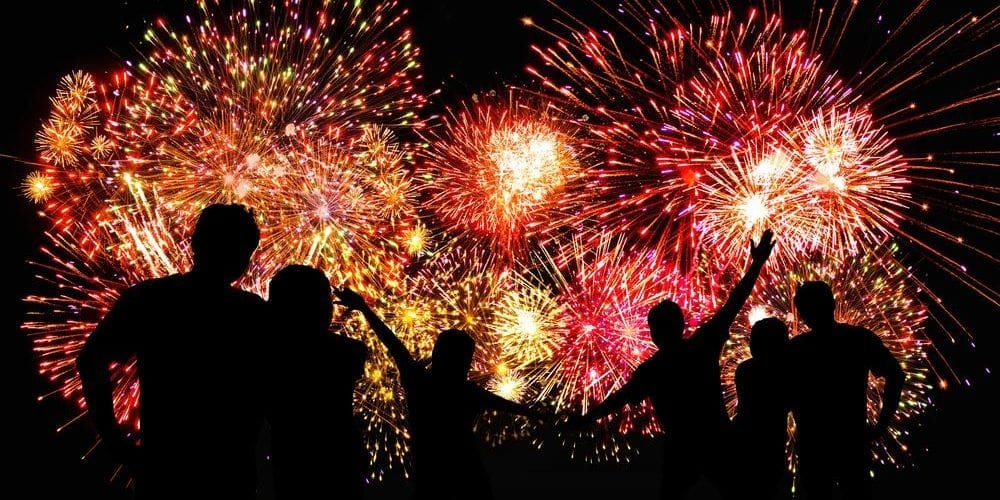The warm summer weather, the smell of hamburgers and hot dogs on the grill, the comfort of family and friends and the sound of fireworks in the air can only mean one thing.
This fun-filled holiday weekend can create many wonderful memories. However, for those improperly handling fireworks, it can mean a trip to the hospital. In fact, the Emergency Department at Children’s Hospital Los Angeles sees far too many children with unexpected injuries that could easily have been avoided.
If not handled properly, fireworks can cause burns, eye injuries, lost fingers, as well as other even more serious trauma in both young children and adults. In California, the selling period for fireworks is strictly limited (between noon, June 28, through noon, July 6) due to fire danger. Read more about California’s laws regarding the use of fireworks.
According to the National Council on Fireworks Safety, about 25% of deaths from fireworks occur in the state of California. That’s why the best way to keep your family safe this holiday is to attend a public fireworks display. By leaving the lighting to the professionals, all you have to worry about is enjoying the show.
However, if your family does decide to purchase consumer fireworks for your own jazzy lighting display, visit the American Pyrotechnics Association’s directory of state laws regarding fireworks. When in doubt, you can always call your local fire department and/or local police department with any specific questions about the laws in your area.
Consumer Fireworks Safety
After researching what fireworks you can legally use, take advantage of the following safety tips offered by the CPSC and the National Council on Fireworks Safety:
Before Your Fireworks Display
- Buy only legal fireworks (legal fireworks have a label with the manufacturer’s name and directions) and store them in a cool, dry place.
- Never experiment or try to make your own fireworks.
- Choose an open area away from spectators, homes, buildings and dry vegetation.
- Use a garden hose to wet down the area prior to lighting fireworks.
- Protect your animals! Their ears are very sensitive and they can get loose quickly and even injured. Keep them locked up inside out of harm’s way.
- Remind your children never to point or throw fireworks at another person and keep fireworks away from their face, hair and limbs.
- Remember, drinking and lighting don’t mix well. Have a designated “sober” lighter for the night.
During Your Fireworks Display
- Always have an adult supervise fireworks activities when children are present.
- Never allow young children to play with or ignite fireworks.
- Always wear eye protection and follow labeled directions.
- Keep a bucket of water or a garden hose handy in case of fire.
- Light fireworks one at a time.
- As each firework burns out, soak it using a hose or bucket of water.
- Never try to re-light or pick up fireworks that have not ignited fully.
- Back up to a safe distance immediately after lighting fireworks.
Handle Sparklers with Care
Some parents don’t realize that sparklers can cause serious harm to young children. Sparklers can burn up to temperatures of about 2,000 degrees, which is hot enough to melt some metals. Only individuals 12 years of age or older should be allowed to handle sparklers.
After Your Fireworks Display
Soak all used fireworks with water and place them in a covered fireproof container located outdoors, away from buildings and brush.
In Case of Injury
Immediately take any injured child to a doctor or hospital emergency department.
In case of an eye injury, don’t touch, rub or flush out your child’s eye, as this may cause more damage. Instead, cut out the bottom of an empty paper cup, place it around the eye and immediately seek emergency medical attention.
If a burn occurs, remove clothing from the burned area, except for any clothing stuck to the skin. Run cool (not cold) water over the burned area and lightly apple a gauze bandage. Do not apply ointments, butter or other remedies on the burn. Seek emergency medical care if the burned area is large, looks infected (swelling, warmth, increased redness, increased pain or pus) or involves the face, hands, neck, feet, joints or genitals.
Independence Day is meant to be a joyous holiday with family and friends, and by following these fireworks safety tips, I hope I can help you make it a safe one!


